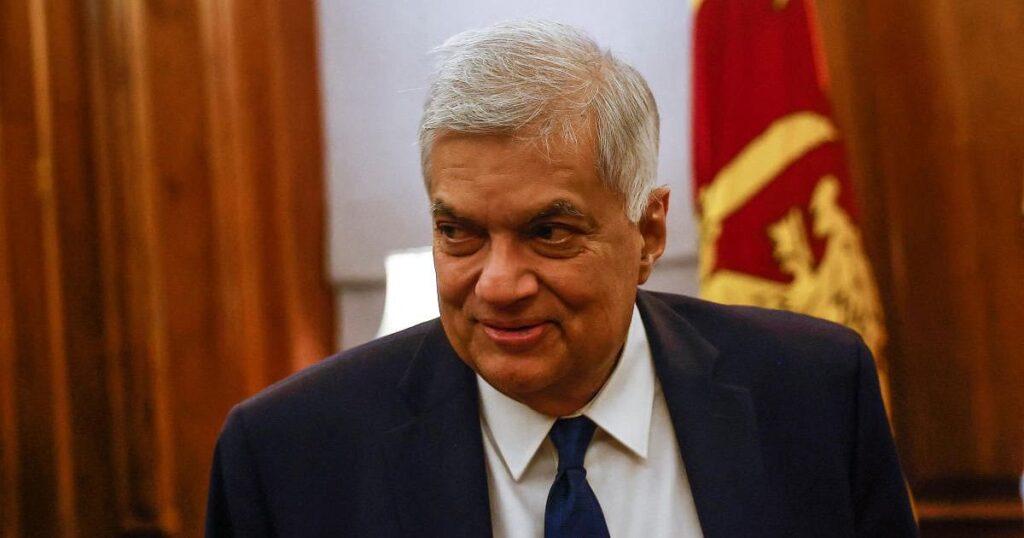COLOMBO: Sri Lankan President Ranil Wickremesinghe has said that presidential elections scheduled for later this year will determine not personal victories or defeats but the success or failure of the island nation, media reports on Wednesday quoted him as saying.
The Sri Lankan Election Commission announced last month that the presidential election would be held between September 17 and October 16.
“The outcome of the upcoming elections will not just be a matter of my personal victory or defeat, but will determine the success or failure of the country,” Wickremesinghe, 75, said at a policy reform debate on Tuesday. Wickremesinghe, who is serving the remainder of ousted President Gotabaya Rajapaksa's term from mid-July 2022, has not said anything publicly about seeking re-election.
“This election is not just about choosing individuals, but about choosing the most effective system for the development of our country. If we believe in the merits of the current approach, then let's go ahead with it,” the presidential press office quoted him as saying.
Wickremesinghe also stressed the importance of implementing strong economic reforms to ensure long-term prosperity in the cash-strapped country, the Daily Mirror reported.
The Wickremesinghe government has implemented tough economic reforms in line with a plan from the International Monetary Fund (IMF).
Wickremesinghe, who is also finance minister, intends to incorporate the reforms into the island's fiscal law by introducing an economic reform bill, which will be presented to parliament after the ongoing constitutional review process by the Supreme Court.
During the debate, Prime Minister Wickremesinghe said people could support the government's economic policies if they were happy with them, but warned that if they were not, they would live in a country with a collapsed economy, struggling to get basic goods like medicines and fertiliser and facing long queues to buy fuel and gas.
In April 2022, Sri Lanka declared its first sovereign debt default since gaining independence from Britain in 1948.
President Wickremesinghe ended queues for essential goods, shortages and lengthy power outages and secured a bailout from the IMF, following a process initiated in Rajapaksa's final days as president.
The president also stressed the need to avoid past mistakes by making decisions during elections that focus on individuals.
Meanwhile, former President Mahinda Rajapaksa issued a stern warning on Tuesday, claiming that postponing the elections would spell the demise of Wickremesinghe's United National Party (UNP), which had proposed postponing both the presidential and general elections.
According to a report by News First web portal, President Rajapaksa expressed disbelief about the talks to postpone the elections, describing them as “foolish” and predicting disastrous consequences for his United National Party (UNP).
On May 28, the United National Party proposed postponing both presidential and general elections in order to push through much-needed economic reforms, and holding a national referendum to extend the terms of both offices by two years.
The proposal was immediately criticized by the opposition as unconstitutional.
The Election Commission also expressed disappointment at any attempt to postpone the upcoming presidential and parliamentary elections, insisting that the elections should go ahead as scheduled.
Prior to the parliamentary elections, Wickremesinghe reiterated his intention to hold the next presidential election this year.
Published June 12, 2024 10:41 IST

